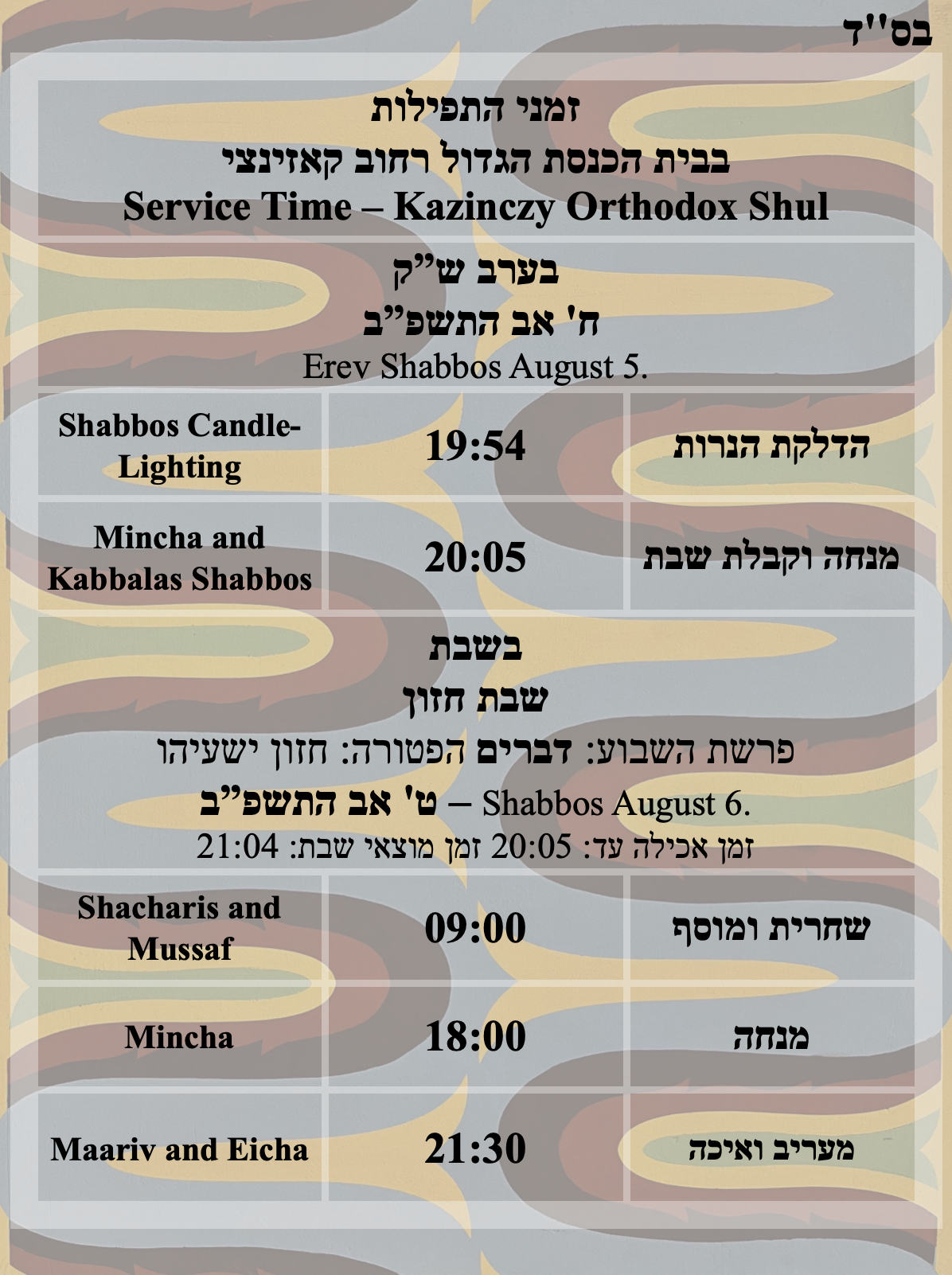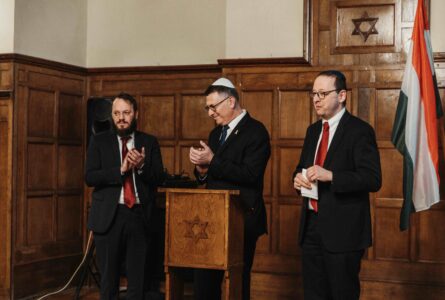Párását Dvárim – Parashat – Devarim
„És volt a negyvenedik évben a tizenegyedik hónapban, a hónap elsején, szólt Mózes Izrael fiaihoz mind a szerint, amint megparancsolta neki az Örökkévaló számukra […]” (5Mózes 1:3.)
Úgy áll a Midrás Tánchumában, hogy azt mondták Izrael fiai Mózesnek: íme Egyiptomban azt mondtad hogy „nem a szónak embere vagyok én […] hanem nehéz szájú és nehéz nyelvű vagyok én” (2Mózes 4:10.), most mégis ilyen „sokat” beszélsz hozzánk?! Kérdés az, hogy miért csak most csodálkoztak ezen a zsidók, hiszen eddig is „sokat” beszélt hozzájuk Mózes az egész Tórán keresztül, egészen az ötödik könyvig?!
A nép pontosan tudta, hogy a „Schine beszél hozzájuk Mózes torkából”, ezért egészen eddig nem csodálkoztak, hogy el tudta mondani nekik az Örökkévaló szavait, illetve parancsolatait világosan, érthetően. Most viszont a Misne Tóránál, az ötödik könyvnél úgy áll, hogy „[…] Ezek a szavak, melyeket szólt Mózes egész Izraelhez […]” (Uo. uo. 1.), vagyis itt nem a Schine beszél hozzájuk, ezért ezen csodálkoztak „hiszen nehéz szájú és nehéz nyelvű” Majse Rábénu. Ezt mutatja itt a poszuk, hogy most is azt mondta Mózes Izrael fiainak „amint megparancsolta neki az Örökkévaló […]”, ezért tudott világosan érthetően beszélni, ugyanúgy mint amikor a Teremtő parancsolatait adta át nekik, mikor a Schine beszélt a torkából, tisztán, ugyanolyan csodálatos módon (Kszáv Szajfer).
„A Jordánon túl, Móáb országában […]” (5Mózes 1:5.)
Árvajsz Móábnál megerősítette Majse rábénu a szövetséget Izrael fiaival. Ezt akarta itt Mózes tanítani: nézzétek meg a Móábitákat, akik bűnre vitték a zsidókat, és 24 ezer ember halálát okozták, és mégis megparancsolja a Tóra „[…] Ne szorongasd Móábot és ne támadd meg háborúval […]” (5Mózes 2:9.) Miért? Mert Lóttól, Ábrahám ősapánk unokaöcsétől – testvérének Horonnak fiától – származnak. Akkor pláne Izrael fiai, akik magától Ábrahám ősapától származnak, biztos kegyelemmel és irgalommal viszonyul hozzájuk a Teremtő, még akkor is, ha valamikor bűnöztek is (Szifszé Kajhén).

We begin Sefer Devarim, which is Moshe’s Rabino final address to the Jewish people.
He uses this precious opportunity to rebuke them and to exhort then to improve their ways. Rav Sorotzkin asks, since the parasha begins by saying “These are the words that Moshe spoke”.Why does it again need to say “Moshe spoke […] according to all that HaShem commanded him” Why is the extra phrase necessary?
The source for the mitzva of rebuke is the verse “You must rebuke your fellow jew” (Vayikra 19.17).
The application of this mitzvah is extraordinary delicate. It has to be based on a deep love for our fellow Jews. Would we stand by and watch some one drown in a lake? So, too, we shouldn’t feel able to stand by and watch someone’s precious neshamah suffer the plight if spiritual starvation.
The Jewish people are a single unit, and we are all responsible for each other. There is no such concept as “minding one’s own business”. If a person feels no desire to help another to correct his ways, then he doesn’t believe in the value of mitzvos.
Moshe Rabbeinu began his rebuke in a soft way. He did this because he was painfully aware that the reason he wouldn’t enter the land of Israel was that he had handled a previous rebuke of the Jewish people relatively badly. In the incident of Mei Meriva, he had angrily said: “listen, now, you rebellious ones – shall we draw water from this rock?” He wished to rectify matters by addressing the people very softly.
Nevertheless, HaShem felt that “Moshe spoke […] according to all that HaShem commanded him.”
He was given orders to rebuke them in a strong way, and it was done by Moshe Rabbeinu who understood the nature of the other and knows what words will have the desired effect. (Slifkin, Brea)
Shabbat Shalom, Paskesz Sharon

